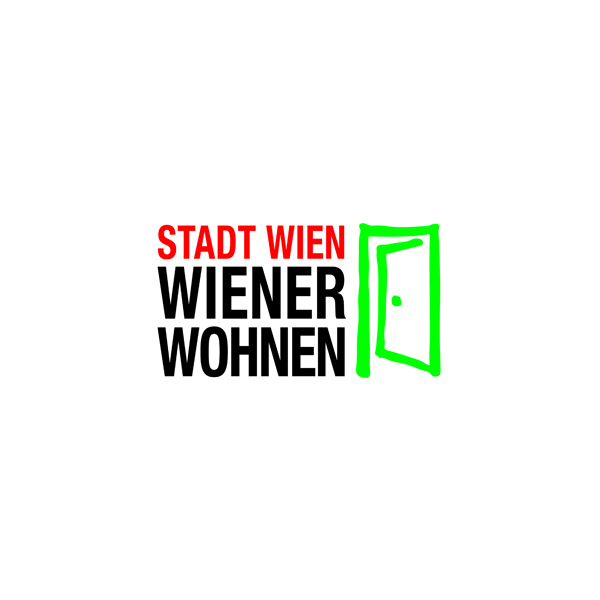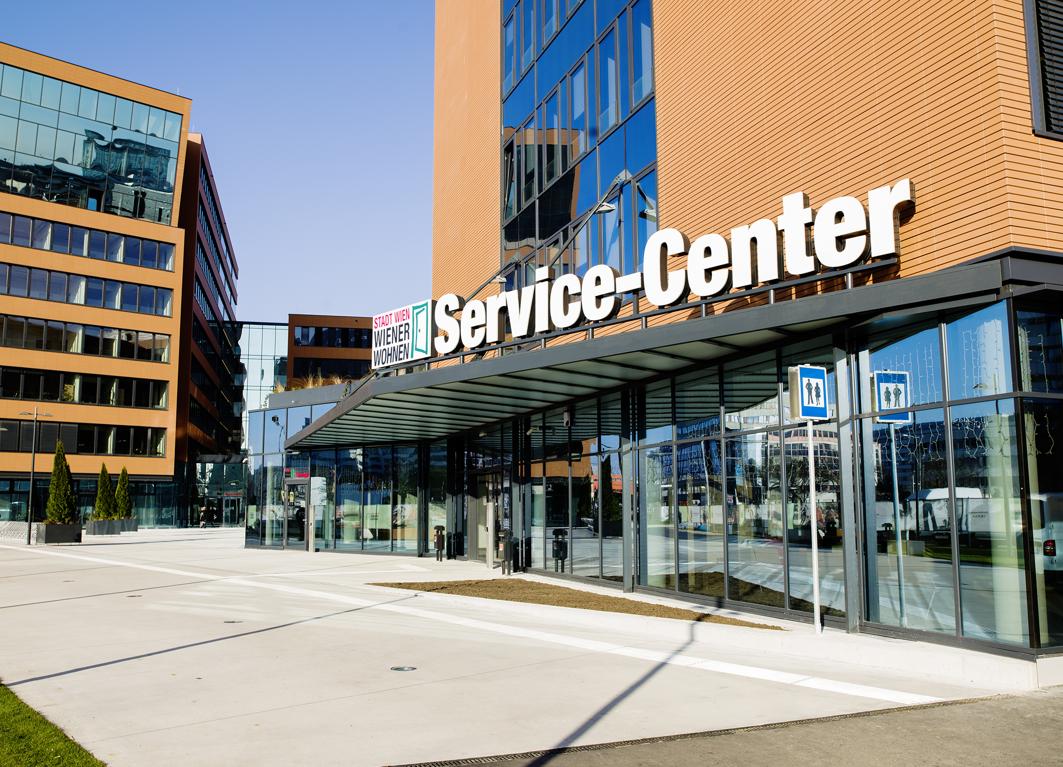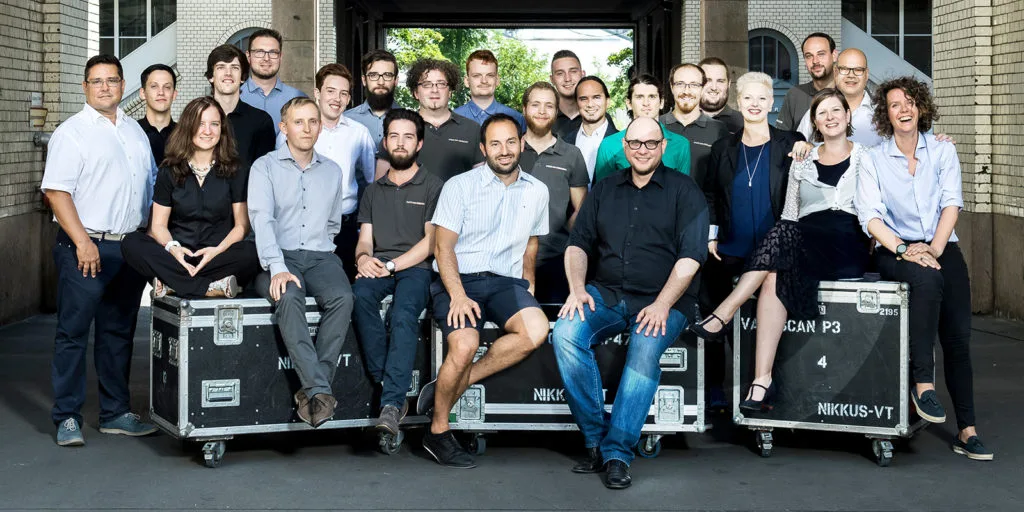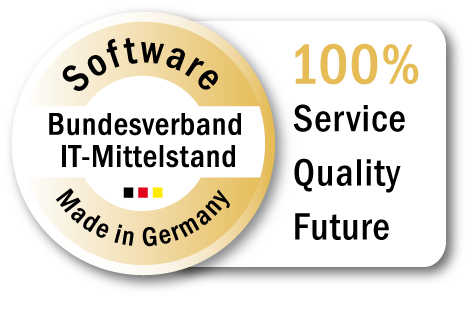Picture: Children in front of an object of “Wiener Wohnen” in Linzer Street in Vienna
Wiener Wohnen
“An asset that cannot be expressed in numbers.”
Over half a year ago, “Wiener Wohnen”, Europe’s largest public-housing management service, transferred their organization manual and their complete process and document management system onto a wiki platform. Here is a progress report.
Wiener Wohnen
“An asset that cannot be expressed in numbers.”
Over half a year ago, “Wiener Wohnen”, Europe’s largest public-housing management service, transferred their organization manual and their complete process and document management system onto a wiki platform. Here is a progress report.
 “Introducing the wiki was a bit like doing a clear out,” says engineer Dietmar Milkovits.
“Introducing the wiki was a bit like doing a clear out,” says engineer Dietmar Milkovits.
He is the head of the quality management department at “Wiener Wohnen”, a company full of tradition which can trace its roots back to the 1920s. As an agency of the municipal authorities of Vienna, “Wiener Wohnen” manages, renovates and operates about 220,000 council flats in 1,800 residential areas, making it the largest public-housing management service in Europe.
During their work, about 750 employees are faced with a multitude of regulations: the Word document in which they used to be collected together was a good 600 pages long. Manipulating this data was thus very laborious, as was searching for regulations and using the connected documents required.
“More than just hype”
“The greatest challenge for the future was to make this mass of information understandable and transparent for our staff, and we wanted to make use of a well-known and proven tool,” said Milkovits. For this reason, in 2017, the company management decided to transfer this company manual and all the document and process management systems into a BlueSpice 3 wiki from Hallo Welt! GmbH, known as MAAS (this is short for the German word MitarbeiterInnenanleitungssystem meaning “Staff Instruction Manual”). Even the in-house intranet was replaced in the process, as though in passing, and since May 2018 “if I need anything, I look in MAAS.”
“A wiki is more than just hype. It is something stable, lending itself to extensions and being customised for future challenges,” says Milkovits, whose department looks after MAAS and operates the platform. He names the fundamental plus-points as the search function, the simple structure with many cross-linking possibilities, the function to print documents as PDFs, a pleasant layout and a rights system which is easy to adapt.

Industry
Architecture, Construction, Real Estate
Market
Service company
Headquarters
Vienna, Austria
Employees
4,500
Product
Goal
Optimization of process and document management
Use case
Website
Phone
+43 (0) 5 75 75 75
Portrait
The company Stadt Wien – Wiener Wohnen administers, renovates and manages Vienna’s municipal housing estates. This includes about 220,000 municipal apartments (of which about 1,400 are serviced apartments and 7,500 apartments under third-party management), 5,129 restaurants and more than 47,000 garage and parking spaces.
This makes us the largest municipal property management company in Europe and means that we bear a great deal of responsibility. Social housing has a long tradition in Vienna and is closely linked to the history of the city and its residents. Vienna has been constantly renewed, changed and developed through social housing in the last century.
The city sees it as its task to cover the basic need for housing. Social housing helps to keep rents low on the housing market. In Vienna there is hardly any homelessness, no poverty areas or insecure districts.
Vienna is one of the cities with the highest quality of life worldwide. We have made a decisive contribution to this with our reasonably priced and needs-based apartments.
A platform for everyone and everything
To grant approval, for example for a satellite system or a pavement café there are various regulations, a checklist which needs to be worked through and documents which need to be filled in. In the past, these regulations needed to be found in the company manual and then the corresponding documents needed to be found with a tricky PDF search as there are about 650 of these special documents. Now, however, everything can be found on a single platform.
Approval procedures are documented like a tour itinerary with links to the legal regulations, checklists and documents which can be called up on demand. For the new allocation of a flat to rent, there is a multitude of such regulations which are listed in the wiki as brief hypertexts, which do not break the logical flow, but which also lead to text giving more detail. The members of staff, by signing on once, have access to the wiki, the process and document management, clearly structured in levels and usable in the way needed for the task.
All information can be used, whether it comes from the management or the “smallest member of staff”. Milkovits is sure that “limits damage credibility…And that which is not meant for everyone doesn’t belong in the wiki.” In theory, about 2,500 employees, including field workers, have access to the MAAS platform. Well-established, up-to-date and transparent knowledge is made available for all these workers. This is combined with the corresponding knowledge transfer between the different areas of the company, resulting in a long-term effect on the company’s business culture. “This is an asset that cannot be expressed in numbers.”

Picture: “Wiener Wohnen” service centre in Vienna – Wiener Wohnen (c)
Editing, training, ticket system
Nine editorial teams have been introduced, corresponding to the company’s nine business units. These teams make sure that the content is kept up-to-date and is continually being further interlinked. This includes areas with binding regulations which can only be changed by editors with special permissions and a non-binding area in which members of staff can place ideas for improving how tasks are carried out.
To ensure the acceptance of MAAS and make the wiki a solid component of the business culture, further measures have been taken in cooperation with the MAAS Project and with the support of Hallo Welt! GmbH. As part of the introduction of the system, among other things, “Wiener Wohnen” hosted a large project exposition for the employees. The members of staff were able to visit different stands, finding out about individual points concerning the new staff management system and the wiki. There were also talks by the project leaders. There are now regular open-house events in which staff ask questions, suggest improvements and are trained on individual points, for example the search function, or finding and linking information. Just talking personally to members of staff is always a huge success for disseminating information, explains Milkovits.
In conjunction with Hallo Welt! GmbH and the management of Wiener Wohnen, a ticket system has also been implemented, using which about 400 suggestions for improvement and ideas have been submitted since its introduction in May 2018.
Now it’s time for the fine tuning
“We are currently in the fine-tuning phase, and we are still learning something every day,” says Milkovits. The editors are regularly confronted with challenges and with the questions “what do the members of staff really want?” and “how one can link up the information even more meaningfully?” It is like learning a new language: “with 300 words in the first phase, one can hold good conversations. In the second phase, with 1,000 words, very good ones.” Currently – over half a year since the introduction of MAAS, one is on the way to phase two. Working with Hallo Welt! GmbH, you always have a competent partner at your side.
Among the challenges for the next two years, Milkovits mentions the expansion of the mobile functionality, for example for flat inspections and other support for tenants provided by the 350 members of staff working in the field; and the building of statistics on the usage practices of the staff. “Not in order to investigate them, but to find out what information can be assumed, what is needed and to identify success – simply to become better. Our wiki is still very young. There is always room for improvement.” (sa)
Share This Story, Choose Your Platform!
| Except where otherwise noted, news on this site is licensed under a Creative Commons Attribution 4.0 International license. |
More success stories

Organization manual for terranets bw GmbH
Six years ago, the network operator terranets bw transferred its organizational manuals and corporate guidelines into a BlueSpice MediaWiki. This saves the company valuable time.
Read more
+
IMS for Wiener Wohnen
Europe's largest municipal property management company has transferred its organisation manual as well as process and document management into a Wiki platform. A field report.
Read more
+
Knowledge base for NIKKUS Veranstaltungstechnik GmbH
BlueSpice enjoys a high level of acceptance among employees for questions about the company, process flows, tips and tricks for familiarization.
Read more
+



